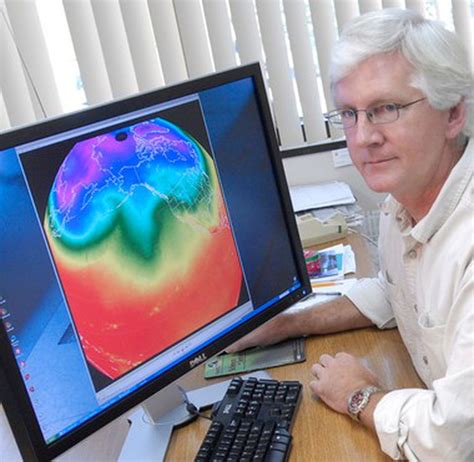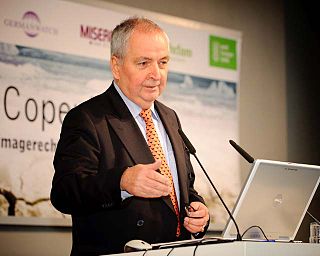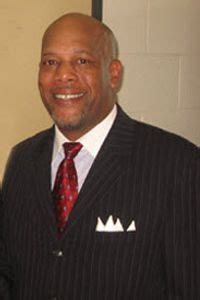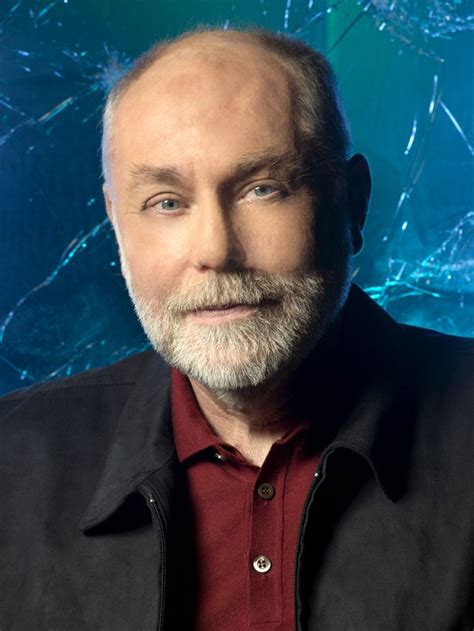A Quote by Bill McKibben
That's when the vast consensus of the world's climatologists, brought together by the UN and The Intergovernmental Panel on Climate Change, really announced that this was going on, and since then the accumulation of data and wickedly hot years has served to only congeal that consensus much more firmly.
Related Quotes
Politicians and some of the scientists like to say that there's a consensus now on global warming or the science has been settled, but you have to ask them, what is there a consensus on? Because it really makes a difference. What are you talking about? The only consensus I`m aware of is that it's warmed in the last century. They completely ignore the fact that there's this thing called the Oregon petition that was signed by 19,000 professionals and scientists who don't agree with the idea that we are causing climate change.
I have this idea of a Taiwan Consensus, which means people in Taiwan have to get together and form a consensus of their own and that they turn around to talk to the Chinese to form a cross-strait consensus so we can build a relationship on that consensus. And in my view, that is the right order to do things.
The IPCC (Intergovernmental Panel on Climate Change, a group of more than 2,500 scientists) has provided the world community with first class assessments of the soaring temperatures the world is facing, the devastating impacts of these rises and the ways in which we can try and avoid the worst effects of global warming. We now know climate change is real and the hand of humankind in this warming is becoming clearer and clearer.
The work of science has nothing whatever to do with consensus. Consensus is the business of politics. Science, on the contrary, requires only one investigator who happens to be right, which means that he or she has results that are verifiable by reference to the real world. In science consensus is irrelevant. What is relevant is reproducible results. The greatest scientists in history are great precisely because they broke with the consensus.
Despite the international scientific community's consensus on climate change, a small number of critics continue to deny that climate change exists or that humans are causing it. Widely known as climate change "skeptics" or "deniers," these individuals are generally not climate scientists and do not debate the science with the climate scientists.
Finally, I would remind you to notice where the claim of consensus is invoked. Consensus is invoked only in situations where the science is not solid enough. Nobody says the consensus of scientists agrees that E=mc2. Nobody says the consensus is that the sun is 93 million miles away. It would never occur to anyone to speak that way.
It is true that we need a consensus to go forward with restoring passenger rail in America, and often a consensus is formed by political action, via government. That is all true. But we have no such consensus, and no one in government or politics these days has the will or the force of personality or perhaps even the understanding of the situation to get on with job of forming a consensus supporting rail.
Reporting the consensus about climate change ... is not synonymous with good science reporting. The BBC is at an important point. It has been narrow minded about climate change for many years and they have become at the very least a cliché and at worst lampooned as being predictable and biased by a public that doesn't believe them anymore.





































